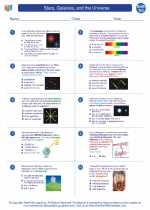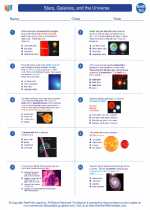Molecules
Definition
A molecule is the smallest unit of a chemical compound that retains the chemical properties of that compound. It consists of two or more atoms held together by chemical bonds.
Types of Molecules
There are two main types of molecules:
- Covalent Molecules: These molecules are formed when two or more non-metal atoms share electrons to form covalent bonds.
- Ionic Molecules: These molecules are formed when a metal atom transfers electrons to a non-metal atom, resulting in the formation of ionic bonds.
Molecular Structure
The structure of a molecule is determined by the arrangement of its atoms and the types of chemical bonds present. The arrangement of atoms in a molecule is represented by its molecular formula and can be depicted using structural formulas, ball-and-stick models, or space-filling models.
Properties of Molecules
The properties of a molecule are determined by its composition, structure, and the types of chemical bonds present. These properties include polarity, solubility, melting and boiling points, and reactivity.
Molecular Interactions
Molecules can interact with each other through various forces, such as hydrogen bonding, van der Waals forces, and dipole-dipole interactions. These interactions play a crucial role in determining the physical and chemical properties of substances.
Study Tips
- Understand the difference between covalent and ionic molecules and their formation.
- Practice drawing and interpreting molecular structures using different representations.
- Learn to identify the properties of molecules based on their structure and composition.
- Explore the various types of molecular interactions and their effects on substance properties.
[Molecules] Related Worksheets and Study Guides:
.◂Earth Science Worksheets and Study Guides High School. Stars, Galaxies, and the Universe

 Worksheet/Answer key
Worksheet/Answer key
 Worksheet/Answer key
Worksheet/Answer key
 Worksheet/Answer key
Worksheet/Answer key
